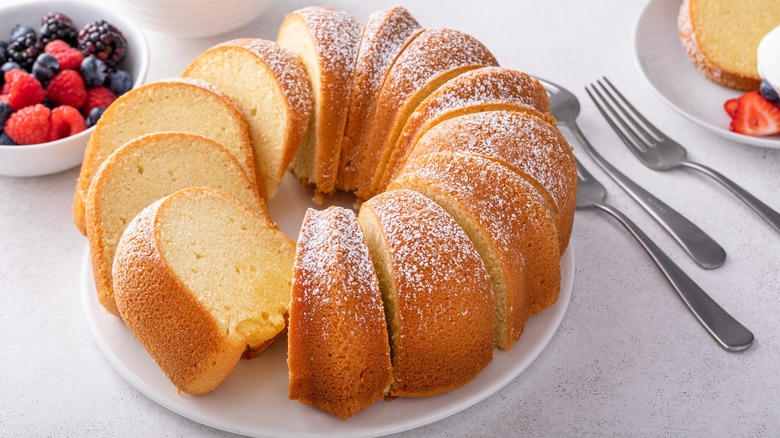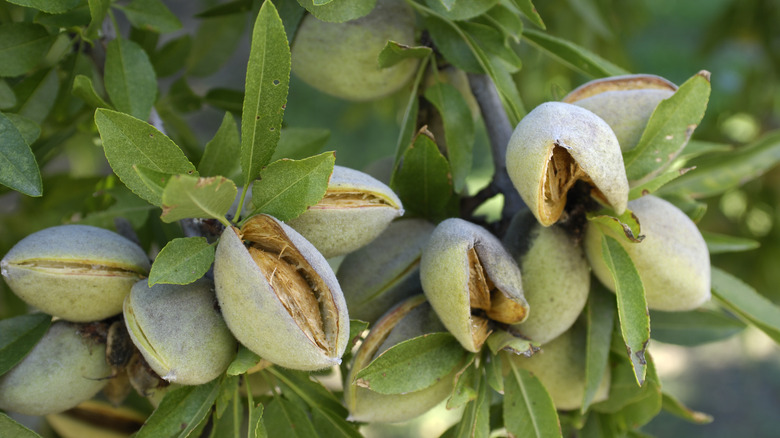Upgrade Basic Vanilla Cake With A More Flavorful Almond Emulsion
Vanilla, especially when it's real rather than imitation, is one of the most complex and deeply flavorful spices on earth. It harbors, by some estimates, up to 500 flavor and olfactory compounds, which can inhabit something as simple as a plain vanilla cake. That's why it's hard to imagine adding another flavor to the mix. That said, sometimes a slightly contrasting yet complimentary flavor is just what a vanilla cake needs, especially when it's a nutty almond taste. Even more interesting than adding a sliced or diced nut is using a concentrated almond liquid similar to how recipes call for vanilla extract in place of vanilla beans. However, yet another option exists for liquid almonds, and it's not extraction. It's emulsion.
The difference between almond extract and almond emulsion can be subtle, but once you've tasted it in a vanilla cake, you may never go back to extract. That's because almond emulsion has a richer, purer flavor depth when infusing your cakes and stands up to high heat without dissipating or "baking out." When using just a small amount of emulsion, the vanilla in your cake continues to flower with a gentle nudge from the liquid. What further differentiates almond extract and almond emulsion comes down to alcohol or water processing, and how that choice affects the purity of the final taste.
How almond emulsion flavors your vanilla cake
Extraction and emulsion work by pulling flavor out of a solid substance, in this case, almonds. To do this, the nuts need a liquid, either alcohol for extraction or water for emulsion.
If you want a concentrated true-to-nut flavor, emulsion is the way to go. Since the process involves suspending almond oil in water and an emulsifying agent, it results in a thick, flavor-packed substance that holds up inside your vanilla cake or a vanilla-based Chantilly cake while it bakes. This heat resistance protects the potency of the resulting liquid, and thus, the complex flavor profile as well.
Extraction, on the other hand, uses alcohol to bring out the almond essence, which makes it more likely to dilute under oven heat. This means a thinner consistency — but some cooks consider that an advantage for predictability and manageability. After all, you don't necessarily want a strong taste that overpowers the vanilla in your cake. Another benefit of almond extract is that the alcohol process helps preserve the flavor inside the bottle, facilitating a long shelf life.
Substituting almond emulsion in a recipe calling for almond extract is not complicated. In most cases, such as in your vanilla cake, just use it in a 1:1 ratio. Just be aware that the flavor of the emulsion will likely be more robust and pronounced, so decrease it slightly if you prefer a milder taste.

